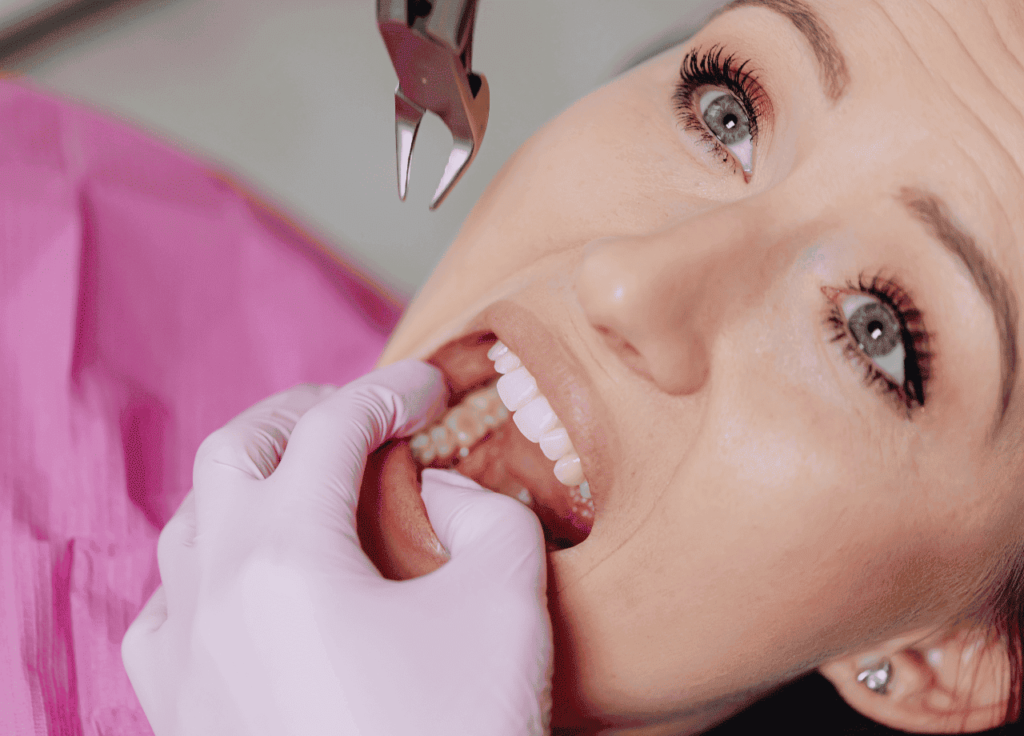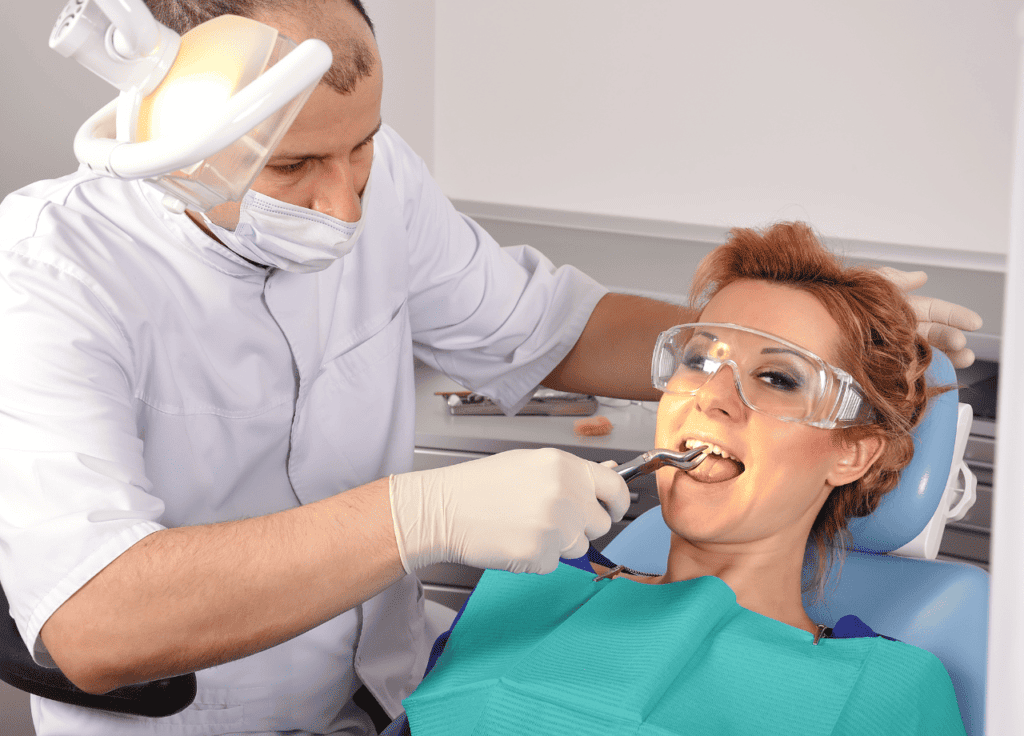
Reasons for Tooth Extraction
Teeth may need extraction in various situations, primarily when they have sustained damage beyond repair, whether due to trauma or severe decay. Other factors that can lead to tooth extraction include overcrowding and infection or disease risk.
Overcrowding often necessitates tooth extraction when preparing the mouth for braces. Braces are designed to realign teeth, requiring adequate space for teeth to move into their desired positions. In cases where there isn’t enough room, a tooth extraction may be performed as part of the orthodontic process to create the necessary space.
Infections can develop when decay or damage reaches the tooth’s pulp, which includes nerves and blood vessels. While root canal therapy is often effective, severe conditions may necessitate extraction to prevent further spread and ensure oral health.
Additionally, patients with compromised immune systems may require tooth extraction even when there’s only a risk of infection, as their ability to fight off infections is compromised. It’s essential to consult a dentist to determine the most appropriate course of action based on individual circumstances.











Excellent service and great staff. Dr. Abdel Mohamed and His assistant Sarah were amazing. If painless dentistry is something you are looking for, Parkway Dental is the place.